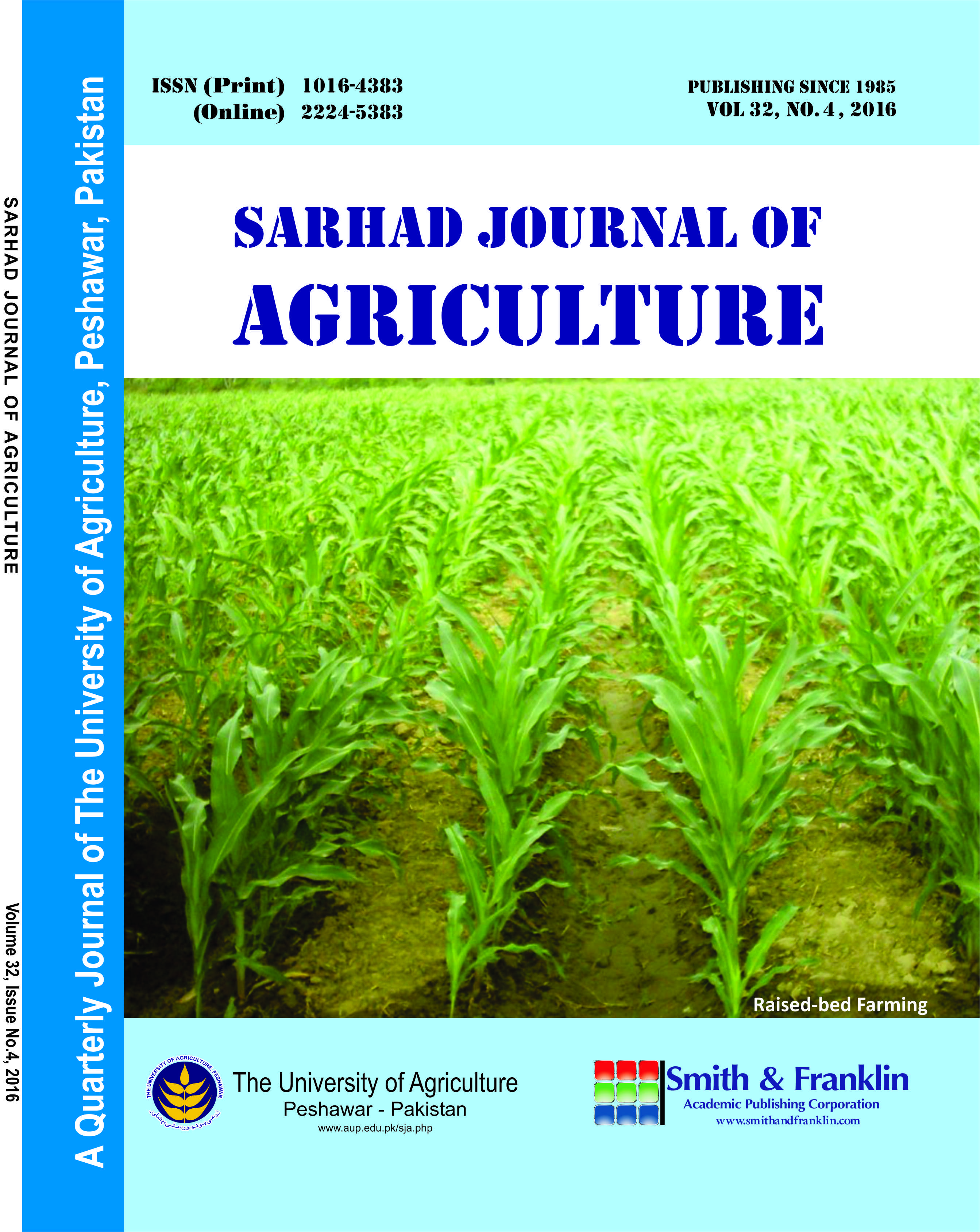Effect of Bio-Chemical Properties of Various Grains on the Quality Rearing of Factious Host, Sitotroga cerealella (Olivier) and its Subsequent Effect on Trichogramma chilonis in Vitro
Effect of Bio-Chemical Properties of Various Grains on the Quality Rearing of Factious Host, Sitotroga cerealella (Olivier) and its Subsequent Effect on Trichogramma chilonis in Vitro
Arbab Zubair Ahmad1, Farman Ullah1, Hayat Badshah2, Muhammad Shehzad Khan1* and Bashir Ahmad1
ABSTRACT
This study investigated the host preference and development of Sitotroga cerealella as well as its effect on the quality of Trichogramma chilonis under laboratory conditions at Agriculture Research Institute (ARI), Tarnab, Peshawar-Pakistan during, 2017-2018. The cereals (maize, oat, wheat and barley) were evaluated on the basis of total adult emergence, egg laying ability, developmental time of S. cerealella and enhancing parasitism along with sex ratio of T. chilonis raised on eggs from moths reared on cereals. The response of cereals to S. cerealella in no choice test revealed significantly greater adult emergence (18.9±12.6) and egg laying efficiency (82.2±6.8 eggs/female) with shortest developmental time (27.6±0.6 days) in wheat, while adult emergence (9.62±6.1) was less in maize grains. In choice test, significant effect of developmental time of S. cerealella was observed with wheat (27.4±0.2 days) and barley (27.2±0.2 days) allowing short duration. Similarly, T. chilonis preference to eggs of S. cerealella adults reared on different cereals showed that percent egg parasitism (89.6±1.7, 85.2±2.1), percent adult emergence (95.6 ±1.3, 92.1±1.4) and female sex ratio (73.1±0.7, 69.6±1.2) of T. chilonis was significantly high in moth eggs reared on maize and wheat in no choice conditions respectively. In choice test, sex ratio was significant and maximum females (70.4±0.5, 77.4±0.6) were observed in eggs from moth reared on wheat and maize. A positive strong correlation of percent adult moth emergence with protein and strong negative between development time and moisture content and carbohydrate was observed. Wheat proved to be suitable as host with high bio-chemical contents for mass rearing of S. cerealella that provide maximum moths in short duration and their eggs yield more of T. chilonis, thus recommended for production system of T. chilonis.
To share on other social networks, click on any share button. What are these?








